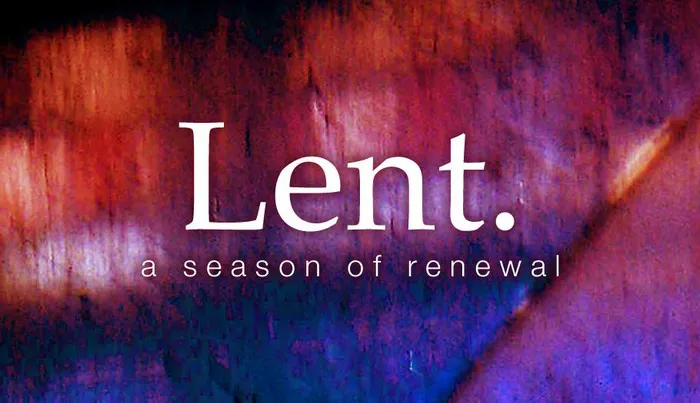Lent, a period of fasting, reflection, and penance, holds profound significance within the Catholic tradition. Spanning forty days, it serves as a time of spiritual preparation leading up to Easter Sunday, the celebration of the resurrection of Jesus Christ. Rooted in centuries of tradition, Lent offers Catholics an opportunity for introspection, repentance, and renewal. In this article, we delve into the rich tapestry of Lent, exploring its origins, practices, and enduring relevance in the modern world.
Historical Origins of Lent
The observance of Lent finds its origins in the early Christian Church, where new converts underwent a period of intense preparation before their baptism on Easter Sunday. This period of preparation, known as the catechumenate, involved fasting, prayer, and instruction in the teachings of the faith. Over time, Lent evolved into a broader season of penance and spiritual renewal for all believers, not just catechumens.
The forty-day duration of Lent holds symbolic significance, mirroring the forty days Jesus spent fasting in the wilderness, as recounted in the Gospels of Matthew, Mark, and Luke. This period of solitude and self-denial prepared Jesus for his public ministry and served as a model for his followers.
The Spiritual Purpose of Lent
At its core, Lent is a season of spiritual introspection and growth. Catholics are called to examine their lives, identify areas for improvement, and strive for greater alignment with the teachings of Jesus Christ. Through prayer, fasting, and almsgiving, believers seek to deepen their relationship with God, cultivate virtues such as humility and self-discipline, and grow in compassion towards others.
Fasting, in particular, holds a central place in the Lenten observance. By abstaining from certain foods or activities, Catholics emulate Jesus’ self-denial in the wilderness and focus their attention on the spiritual rather than the material. This practice serves as a reminder of the importance of moderation, self-control, and dependence on God.
SEE ALSO: A Guide to Lenten Devotions That Strengthening Family Bonds
Practices and Traditions of Lent
Throughout Lent, Catholics engage in a variety of practices aimed at deepening their faith and spiritual discipline. These may include:
Prayer: Lent is a time of intensified prayer, both individually and communally. Catholics may attend daily Mass, participate in Stations of the Cross, or engage in personal prayer and reflection. The Lenten season offers an opportunity to draw closer to God through conversation, meditation, and contemplation.
Fasting: Traditionally, Catholics abstain from meat on Fridays during Lent and may also fast on Ash Wednesday and Good Friday. In addition to dietary fasting, believers may choose to give up certain luxuries or habits as a form of spiritual discipline. The goal of fasting is not merely self-denial but rather a deeper awareness of one’s dependence on God and solidarity with those who suffer.
Almsgiving: Central to the Lenten observance is the practice of almsgiving, or charitable giving. Catholics are encouraged to donate to those in need, support charitable organizations, and engage in acts of service and mercy. Almsgiving fosters a spirit of generosity, compassion, and solidarity with the marginalized and vulnerable.
Sacrament of Reconciliation: Lent is a season of repentance and reconciliation, culminating in the celebration of the Sacrament of Penance or Confession. Catholics are invited to examine their consciences, confess their sins, and receive God’s forgiveness and mercy. The sacrament offers a chance for spiritual renewal and healing, allowing believers to experience the grace of God’s love and forgiveness.
The Relevance of Lent Today
In an increasingly fast-paced and materialistic world, the observance of Lent offers a counter-cultural invitation to slow down, reflect, and prioritize the spiritual dimension of life. In a society characterized by consumerism and instant gratification, the disciplines of prayer, fasting, and almsgiving provide a much-needed antidote, fostering a deeper sense of meaning, purpose, and connection.
Moreover, Lent serves as a reminder of the universal human experience of suffering and redemption. In embracing the disciplines of Lent, Catholics enter into solidarity with Jesus Christ, who experienced suffering, death, and ultimately resurrection. Through their own journey of self-denial and spiritual growth, believers come to share in the Paschal mystery, the triumph of life over death and hope over despair.
Conclusion
In conclusion, the celebration of Lent holds profound significance within the Catholic tradition, serving as a time of spiritual preparation, introspection, and renewal. Rooted in the historical practices of the early Christian Church, Lent offers believers an opportunity to deepen their relationship with God, cultivate virtues, and grow in compassion towards others. In a world marked by distraction and materialism, the disciplines of Lent provide a pathway to greater spiritual depth, meaning, and fulfillment. As Catholics embark on their Lenten journey each year, they are reminded of the timeless truths of the Christian faith and the enduring promise of Easter joy and salvation.

